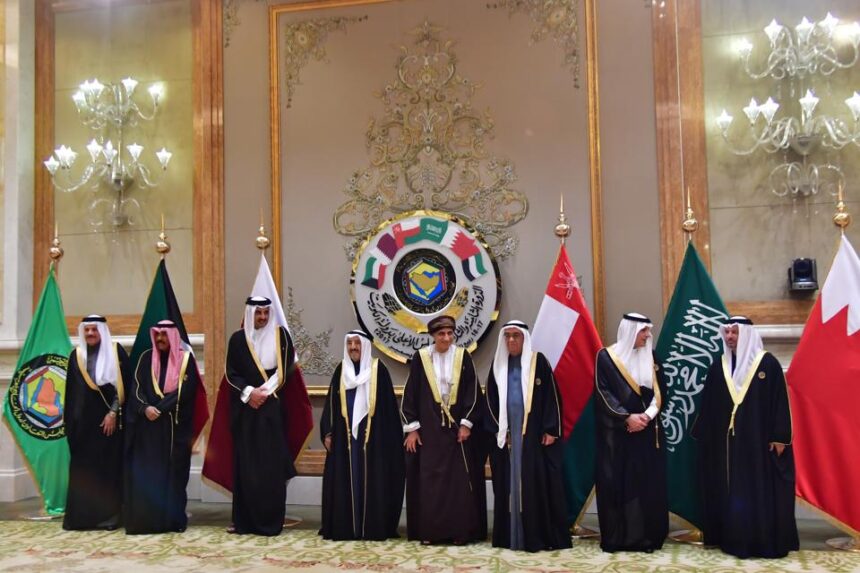The Gulf Cooperation Council (GCC) and Malaysia have officially begun negotiations for a free trade agreement (FTA). This initiative is a pivotal step towards reinforcing economic ties and expanding investment opportunities. The FTA talks were launched on the sidelines of the summit between the GCC and the Association of Southeast Asian Nations (ASEAN) in Kuala Lumpur.
Enhancing Bilateral Investment and Cooperation
By initiating these talks, both regions aim to increase bilateral investment and create a more integrated trading environment. This marks a mutual commitment to exploring new business avenues and economic collaboration.
A joint statement from both parties highlighted that negotiations would cover several key sectors of mutual interest. The agreement will focus on crucial economic aspects such as reducing tariffs. Simplifying regulations, and promoting business mobility, which are vital for enhancing trade between the two regions.
Read More: Robotics Pilot Revolutionizes UAE Mall Shopping Experience
Focus on Key Economic Sectors
The FTA will address significant trade barriers. Which will be opening up more opportunities for sectors such as electronics, palm oil, and petroleum products. By simplifying these processes, both Malaysia and the GCC will benefit from improved market access and smoother trade relations.
Jasem Albudaiwi, Secretary General of the GCC, emphasized that the agreement will deepen the partnership between the two regions. The FTA is viewed as a mechanism for boosting trade and enhancing the strategic relationship between Malaysia and the GCC countries, leading to greater economic stability.
Strengthening the Malaysia-GCC Partnership
For Malaysia, this FTA will bring a more predictable and efficient trading environment, creating better conditions for its rapidly expanding economy. It positions Malaysia as a strategic partner for Gulf countries looking to diversify their trade relationships.
Last year, Malaysia’s total trade with the GCC reached $22.3 billion, with electronic products, jewellery, palm oil, and processed food being some of the top exports. The FTA is expect to further elevate these trade figures by reducing both tariff and non-tariff barriers.
Economic Expansion Through Trade Opportunities
The FTA presents Malaysia with an opportunity to expand its exports to the Gulf region, especially in high-demand sectors such as electronics and food products. The reduction in trade barriers and enhanced business mobility will make cross-border transactions more seamless and cost-effective.
The Malaysian Ministry of Investment, Trade, and Industry noted that the FTA would not only lower trade barriers but also promote regulatory cooperation. This would enable businesses in both regions to operate more effectively across borders, leading to increased investment and economic growth.
Reducing Barriers and Enhancing Mobility
With reduced trade restrictions and greater regulatory cooperation, businesses from both regions will find it easier to access new markets and scale their operations. This will enhance both Malaysia’s and the GCC’s global competitiveness, creating more opportunities for business expansion.
Tengku Zafrul Aziz, Malaysia’s Minister of Investment, Trade, and Industry, described the FTA as a strategic platform for enhancing bilateral relations. Malaysia considers the GCC one of its most valued trade partners in West Asia, and this agreement is a step towards solidifying that relationship.
Strategic Platform for Long-Term Growth
This FTA will help Malaysia recalibrate its economic relations with the Gulf region, enhancing opportunities for its industries to thrive in the Gulf markets. It will also serve as a foundation for future growth, benefiting both economies in the long term.
The agreement has broader implications, potentially encouraging other global economies to deepen their trade ties with the GCC. The UK, for example, is in negotiations with the GCC for an FTA, further demonstrating the Gulf’s growing influence in the global trade landscape.
Global Interest in Gulf Trade Partnerships
With countries like the UK and Turkey seeking similar agreements, the Gulf region is increasingly seeing as a valuable trading partner. The growing number of FTA negotiations with Gulf nations highlights the region’s strategic importance to global economic development.
Turkey’s FTA with the GCC is project to create a $2.4 trillion trade opportunity, highlighting the global interest in Gulf markets. This makes the GCC a key player in fostering international trade growth and strengthening its economic relations with various regions.
Read More: Tesla Car Sales in Europe Decline Sharply in April 2025
Wider Economic Opportunities for Global Partners
The FTA with Malaysia is just one example of how Gulf nations are solidifying their position in the global trade network. With growing interest from other countries. The GCC stands poised to expand its economic influence, offering substantial trade and investment opportunities for global partners.
For Malaysia, the FTA represents an important step towards diversifying its trade markets and gaining access to one of the most lucrative regions in the world. The agreement is expected to benefit industries such as electronics, palm oil, and processed food by creating more efficient trade flows.
The FTA will open doors to new markets for Malaysia’s key exports. Ensuring that its products are more competitive in the Gulf region. This strategic move will further cement Malaysia’s position as a significant player in global trade.
Conclusion
The FTA between the GCC and Malaysia presents significant benefits for both regions. It will reduce trade barriers, enhance business mobility, and foster stronger economic cooperation. This agreement is expected to result in a prosperous future for both economies. Creating a framework for continued growth and collaboration.
Follow 10X Times for more business news.






